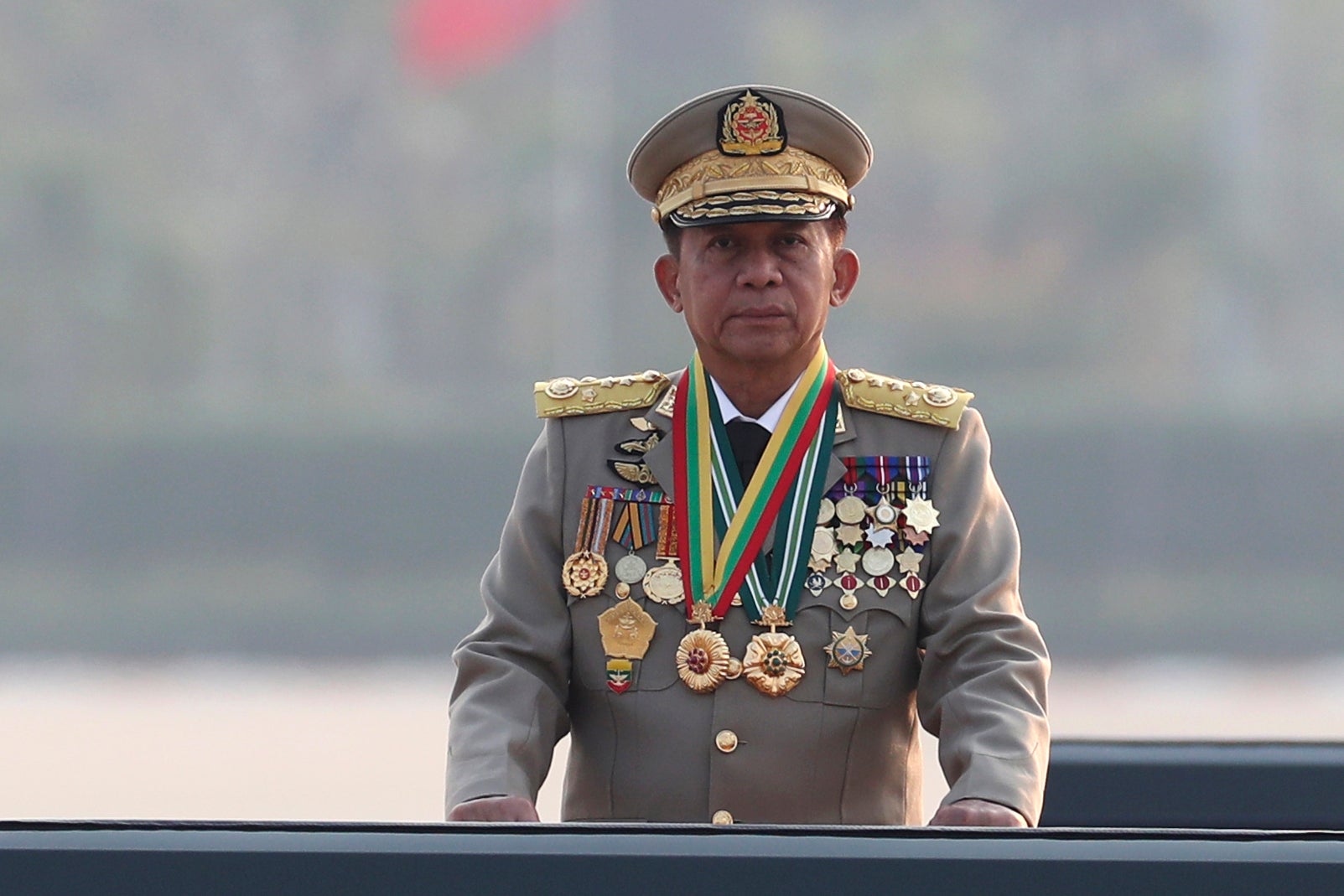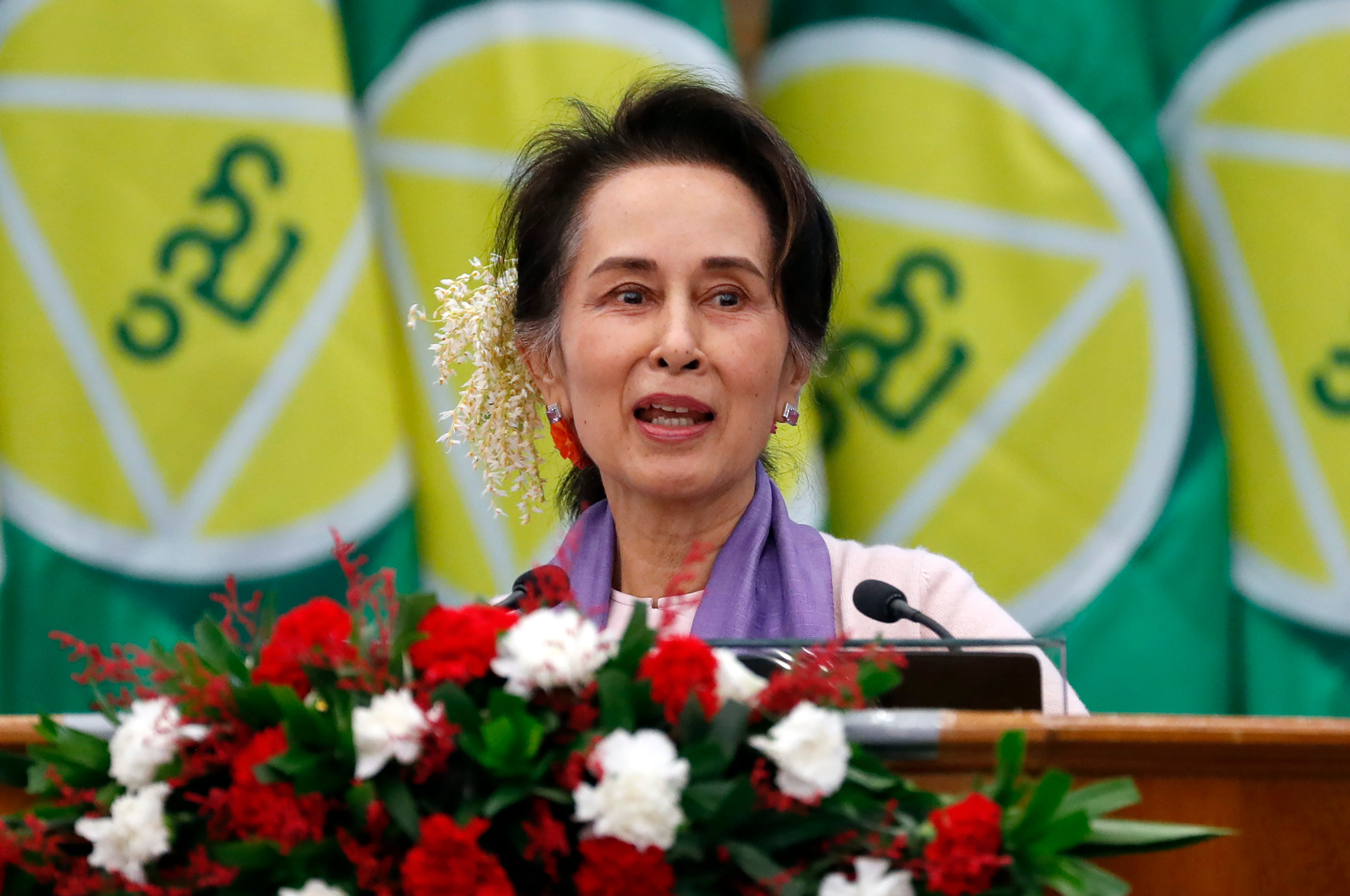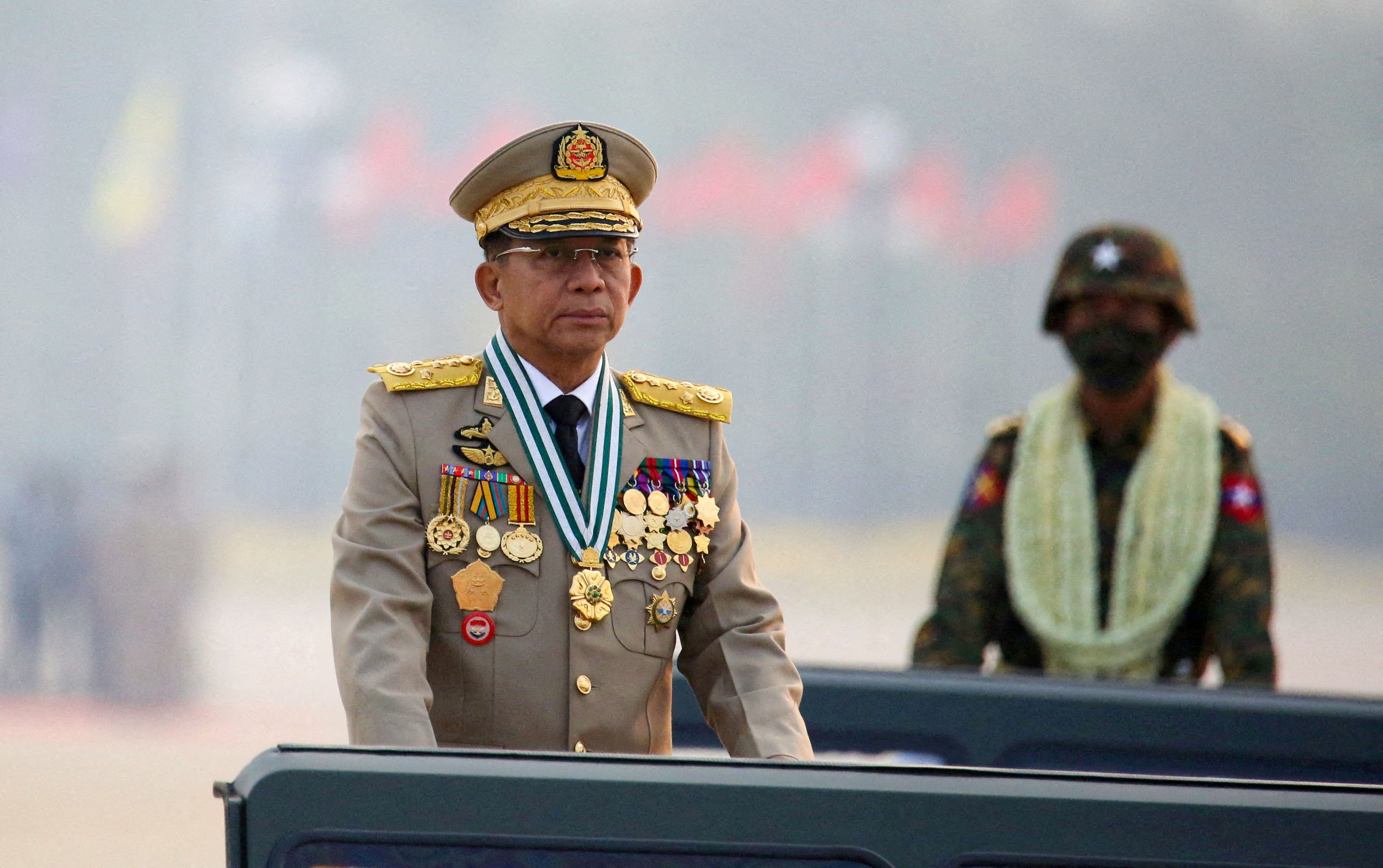Myanmar’s military regime extends state of emergency as civil war rages
Junta has delayed promised elections until 2025 – which opponents fear will be used only to cement its rule

Your support helps us to tell the story
From reproductive rights to climate change to Big Tech, The Independent is on the ground when the story is developing. Whether it's investigating the financials of Elon Musk's pro-Trump PAC or producing our latest documentary, 'The A Word', which shines a light on the American women fighting for reproductive rights, we know how important it is to parse out the facts from the messaging.
At such a critical moment in US history, we need reporters on the ground. Your donation allows us to keep sending journalists to speak to both sides of the story.
The Independent is trusted by Americans across the entire political spectrum. And unlike many other quality news outlets, we choose not to lock Americans out of our reporting and analysis with paywalls. We believe quality journalism should be available to everyone, paid for by those who can afford it.
Your support makes all the difference.Myanmar’s military regime – which seized power in a 2021 coup – has extended the state of emergency serving to uphold its rule for another six months, as civil war rages in the country.
The state of emergency was initially declared when the military ousted the elected government of Aung San Suu Kyi on 1 February 2021, arresting her and members of her National League for Democracy party.
The emergency decree hands all government powers to military leader Senior General Min Aung Hlaing, and has now been extended six times, with the junta having pushed back promised elections – which citizens warn will be neither free nor fair – until an as-yet-unallocated date in 2025.

But the junta now faces its greatest challenge since seizing power. With attempts at peaceful protests having been lethally repressed, many opponents of military rule took up arms – and large parts of the country are now embroiled in conflict.
The powerful ethnic minority militias and people’s defence forces that support Myanmar’s main opposition have now taken wide swathes of territory in fierce fighting in recent months.
As a result, the military is now estimated to control less than half the country, but retains power over much of central Myanmar, including the capital, Naypyidaw, which was recently targeted by small rocket attacks and two bombings.
The state of emergency’s extension was approved after Mr Aung Hlaing argued more time was needed to restore stability to the country and carry out a census in preparations for national elections, state-run broadcaster MRTV reported.
But with most leaders of the National League for Democracy party having been arrested, and a distinct lack of remaining free media in Myanma, the upcoming general election is widely seen as an attempt to normalise the military’s seizure of power through the ballot box.

Under the country’s 2008 constitution – which was drafted by the army – the military can rule the country under a state of emergency for one year, followed by two possible six-month extensions before holding elections.
Wednesday’s extension, however, was the regime’s sixth. In addition to the National Defence and Security Council which approved it, such extensions are supposed to be endorsed by Myanmar’s president. But current acting president Myint Swe last week authorised Mr Aung Hlaing and the council to carry out his dutieswhile he is on medical leave.
The military originally announced elections would be held in August 2023, but has regularly pushed the date back. They are now expected at some point in 2025. Under Myanmar’s constitution, the military has to transfer government functions to the president at least six months before an election is held.
The fiercest fighting in recent weeks has been in the northeast, where the ethnic militias from an alliance group claimed last week to have seized the town of Lashio, which houses the major regional military headquarters, and Mogok, the centre of the country’s lucrative gem-mining industry.
Reports suggest that regime troops continue to hold the regional headquarters but could be forced from Lashio soon.
In Lashio, the main prison gate was reportedly opened over the weekend and more than 200 political prisoners, including Tun Tun Hein, a former deputy speaker of the lower house of Myanmar’s parliament and senior member of Suu Kyi’s National League for Democracy party, were released.
Additional reporting by AP
Join our commenting forum
Join thought-provoking conversations, follow other Independent readers and see their replies
Comments